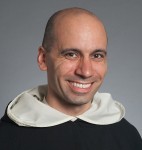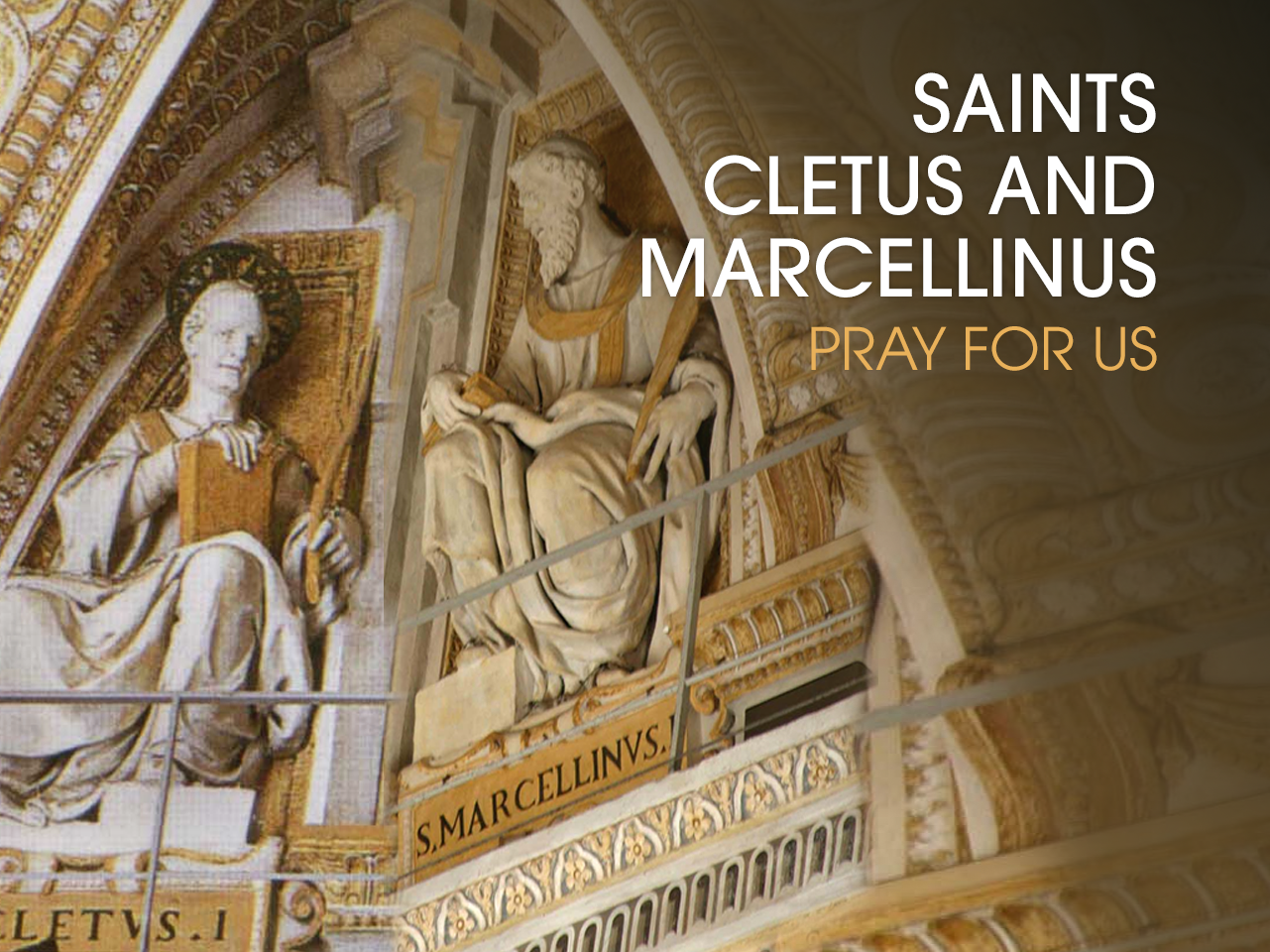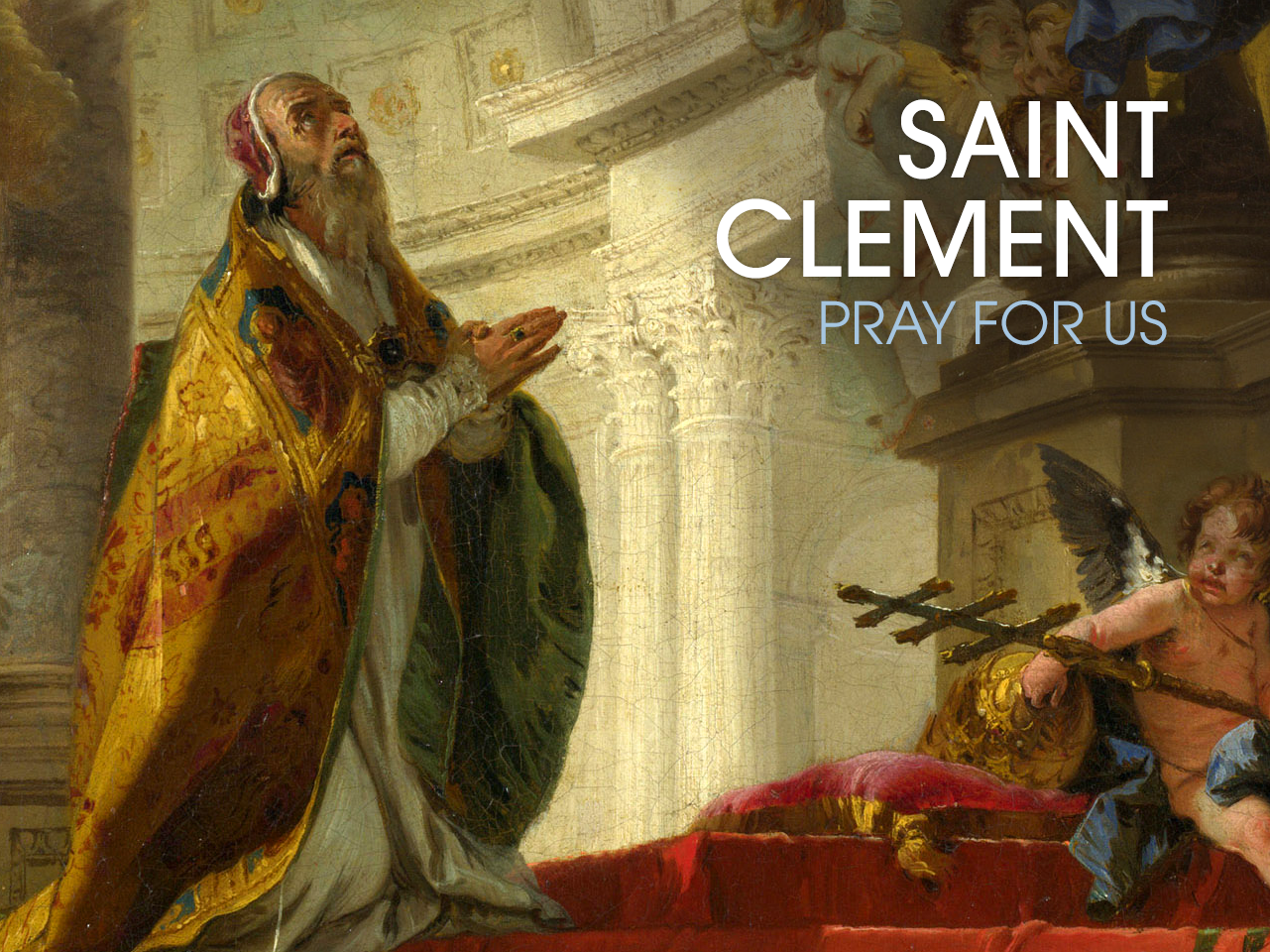
– by Michele Giambono, ca. 1450, San Crisógono a caballo, San Trovaso, Venecia, 199 cm (78.3 in). Width: 134 cm (52.8 in).

-by Br Isaac Augustine Morales, OP (Br Isaac earned a PhD in New Testament from Duke University and taught for four years in the Theology Department of Marquette University prior to joining the Order.)
“Today is the feast day of St. Chrysogonus. You may think you know nothing about him, but if you go to Mass regularly, chances are you’ve at least heard his name: “With Linus, Cletus, Clement, Sixtus, Cornelius, Cyprian, Lawrence, Chrysogonus, John and Paul, Cosmas and Damian, and all the saints.” Thus runs one part of the Roman Canon, one of the Eucharistic prayers of the Roman liturgy. Today is also the feast day of St. Colman of Cloyne, St. Andrew Dung Lac, St. Columbanus, St. Alexander, and St. Anthony Nam-Quynh. In fact, according to one calendar, it is the feast day of over thirty saints and blesseds, and one would find similar numbers for practically every day of the year.
Most of these saints are unfamiliar to us. So why does the Church recognize and celebrate so many saints? Isn’t it a bit much? I suggest three reasons that the Church puts these men and women forward for our veneration (dulia vs latria): their numbers inspire hope, they manifest the infinite variety of God’s goodness, and they remind us that holiness is ultimately ordered to the glory of God.
Considering the vast number of saints recognized by the Church gives us hope, because the saints remind us of how effective God’s grace is. Not a single one of the saints became holy purely by his own efforts. (Ed. even their own nature’s, whatever they might have been, cooperating with grace, were God’s gift.) The grace of God transformed them, fixing their broken nature so that they might become the images of God he created them to be (Gen 1:26-28), conformed to Christ, the perfect “image of the invisible God” (Col 1:15). If God has worked such a transformation in so many men and women throughout history – men and women who were just as broken as we are – then we can be confident that he can do the same for you and me. (Ed.: I believe in grace.)
The saints also manifest the inexhaustible richness of God’s goodness. God calls people from all cultures, times, and places, and from all walks of life. The same God who knocked a first-century Jewish tentmaker to the ground, irrevocably changing the course of his life, also invited a small Albanian Sister of Loreto to found a new order and set the world on fire. Doctors, priests, monks, scholars, virgins, mothers, Europeans, Americans, Africans, Asians – no state in life, no culture is beyond the transformative power of God’s holiness. The Church gives us saints from every age and from every region of the world to teach us that no situation is outside the immeasurable grace and mercy of God.
Finally, the saints remind us that all our striving after holiness is ultimately for the glory of God. With so many saints on the Church’s calendar, some of them are bound to be forgotten or at least neglected – and they’re okay with that! Holiness is not about attracting the praise of others to yourself, but about drawing others to praise God, who is wonderful in his saints. With the Blessed Virgin Mary, the saints sing, “My soul proclaims the greatness of the Lord!” In imitation of their Lord, who humbled himself to the point of death, death on a cross, they, too, humble themselves for the glory of God. Through the intercession of St. Chrysogonus – and of St. Colman of Cloyne, St. Andrew Dung Lac, St. Columbanus, St. Alexander, and St. Anthony Nam-Quynh, indeed of all the saints – may we be strengthened to do the same.”
(Ed.: today is also the feast of Sts Flora & Mary, Martyrs of Cordoba, Spain.)

-please click on the image for greater detail
St. Cletus (1st c.) and St. Marcellinus (3rd c.) were both Romans, popes, and martyrs who ruled the Holy See during the terrible persecution of Christians at the hands of the Roman Empire. St. Cletus was a convert and disciple of St. Peter the Apostle who became the third Bishop of Rome from 76 to 89 A.D., under the reigns of Roman Emperors Vespasian and Titus. His name appears in the Roman Canon of the Mass. St. Marcellinus was the twenty-ninth Bishop of Rome from 296 to 304 A.D. during the infamous persecution of the Roman Emperor Diocletian, on the eve of the legalization of Christianity across the Empire. Statues of these two popes of the early Church sit on opposite corners of the portico ceiling of Saint Peter’s Basilica in Rome.
“Some people who think themselves naturally gifted don’t want to touch either philosophy or logic. They don’t even want to learn natural science. They demand bare faith alone—as if they wanted to harvest grapes right away without putting any work into the vine. We must prune, dig, trellis, and do all the other work. I think you’ll agree the pruning knife, the pickaxe, and the farmer’s tools are necessary for growing grapevines, so that they will produce edible fruit. And as in farming, so in medicine: the one who has learned something is the one who has practiced the various lessons, so that he can cultivate or heal. And here, too, I say you’re truly educated if you bring everything to bear on the truth. Taking what’s useful from geometry, music, grammar, and philosophy itself, you guard the Faith from assault.”
—St. Clement of Alexandria
“Think, dear friends, how the Lord continually proves to us that there will be a resurrection to come, of which he made the Lord Jesus Christ the first-fruits by raising him from the dead. Contemplate the resurrection that is always going on. Day and night declare the resurrection to us. The night sinks to sleep, and the day rises; the day departs, and the night comes on. Look at the crops, how the grain is sown: the sower goes out and throws it on the ground, and the scattered seed, dry and bare when it fell on the ground, is gradually dissolved. Then out of its disintegration the mighty power of the Lord’s providence raises it up again, and from one seed come many bearing fruit.”
—St. Clement of Rome
“Let all nations know that Thou art God alone, and that Jesus Christ is Thy Son, and that we are Thy people and the sheep of Thy pasture.”
— St. Clement of Rome
“Follow the saints, because those who follow them will become saints.”
-St. Clement I
“If you do not hope, you will not find what is beyond your hopes.”
— St. Clement
“Let us contend with all earnestness, knowing that we are now called to the combat. Let us run in the straight road, the race that is incorruptible.”
-St. Clement
All you holy men and women, pray for us!
Love,
Matthew

